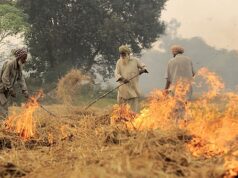Traditionally, three resources of production–land, labour and capital–are utilized to create finished goods and services. The effective utilisation of these resources creates wealth (finished goods and services), and makes a society prosperous; if ineffectively used, societies remain stagnant and poor. Therefore, the next natural question that arises is: What makes some societies effectively use these resources to create wealth?
The short answer: well-defined and secure property rights over these resources and finished products.
When a society decides and demarcates who owns what and how much of the scarce economic resource, property rights are defined. When individuals can consume their demarcated resource, earn income from it, transfer it to others and enforce their right over it (also called bundle of rights), without any threat or coercion, their property rights are said to be secure. Together, both these conditions incentivise the property-owners to care for the scarce resource, and utilise it in the best possible manner to generate wealth and prosperity.
Conversely, when it is unclear who owns what resource, there is no incentive for anyone to care for it. The result is neglect and over-exploitation of the scarce resource. Similarly, when the rights are insecure, the resource is not utilized efficiently. The result? Wasted opportunities to create wealth and spawn prosperity.
How do secure property rights help people to work hard and create wealth?
Individuals have a natural tendency to expend effort to acquire resources and fulfil their wants; and a system of secure property rights incentivises them to work towards that end. If individuals know that they can fearlessly retain property for their personal use, they will exert the effort, which they otherwise would not. Driven by the amount of property acquired from their previous efforts, some will work longer and harder. This raises the overall output from a society and makes it prosperous.
Compare this to a system where individuals have little right over their property. Such individuals have little incentive to produce beyond what is needed for survival—lest their property gets stolen or expropriated. As a consequence, wealth is not created; they stagnate and remain poor.
Secure property rights are a necessary condition for creating wealth, but are they sufficient?
Yes. Secure property rights also mean low taxes and restrictions, free trade, and access to justice.
Property rights include the right to keep and consume one’s property. Therefore, securing them means lowering taxes to allow individuals to keep more, and lowering restrictions to allow use without permissions. This gives rise to innovation, and transforms surplus resources into new goods and products. From selling the transformed-surplus-resource at a higher price, the individual can acquire even more. This quest for ‘acquiring more’ without the fear of losing it, cascades into longer work-hours, larger wealth and greater prosperity.
The street vendors in India are effectively deprived of the right to consume their property. Despite a law to protect them, the authorities often evict and confiscate their property in the pretense of public nuisance. As a result, the street vendors do not expand their businesses—lest they be slowed down while grabbing their goods and escaping the authorities during raids. The constant uncertainty of losing their property disincentives them from
investing in their shops and ‘acquiring more’, and hence, from growing.
Property rights also includes the freedom to transfer one’s property. Therefore, securing them means allowing individuals to freely trade their property in exchange for what they desire. It spontaneously gives rise to an economic order, where individuals produce based on relative ability-comparative advantage—and exchange based on desire. A society where a butcher and baker can voluntarily exchange their beef and bread will create wealth for both participants, which makes them better off than before. Additionally, the exchange of labour (also an individual’s property) allows division of labour and specialization, which further raises productivity and reduces waste in society.
Both the owners and pullers of cycle rickshaws in India are barred from transferring their property. Owners are prevented from leasing their rickshaws to pullers (non-owners), which prevents their effective utilisation; the owners cannot lease their additional rickshaws, and the pullers who are typically too poor to own a rickshaw are deprived from trading their labour for wages.
Property rights also includes the right to enforce their right. An institutional structure that helps rightful-owners regain/compensate for stolen or expropriated property, creates an insurance system. This allows individuals to not fear unlikely events of theft, and preserves the incentives for wealth creation in a society.
Land in India, is an example on which property rights cannot be easily enforced. About 66% of all court cases in India are related to either land or property. Because of this slow enforcement mechanism, people are afraid to leave their land unattended—lest they have to run from pillar to post to reclaim it. Despite large scale urban migration, there is a tendency for someone to stay back and hold their land. Even large scale pooling of land resources is absent in India. Although it can facilitate greater productivity and induce prosperity, people are simply not confident in leasing their land.
Meaning of prosperity may extend beyond accumulation of material wealth; do property rights play a role in such cases?
Although the literal definition of prosperity is material/financial success, defining and securing property rights has also shown to quell conflicts and usher peace. As Professor Hernando de Soto’s work in Peru shows, when cocoa-farmers were given small land-holdings, they deprived the leaders of the guerilla movement of their safe havens, which forced them to cities to be ultimately arrested.
Therefore, well-defined and secure property rights not only create the initial incentives for wealth and peace creation, but it also helps their extension and preservation.
The author is grateful to Barun Mitra and Bhuvana Anand for the valuable discussions.
Read more: https://spontaneousorder.in/why-the-property-rights-solution-finds-no-mention/
Post Disclaimer
The opinions expressed in this essay are those of the authors. They do not purport to reflect the opinions or views of CCS.






